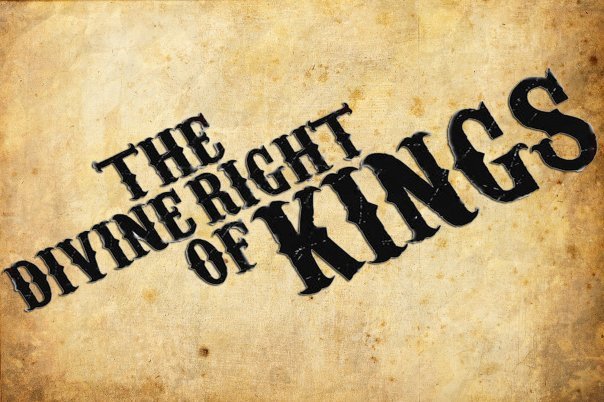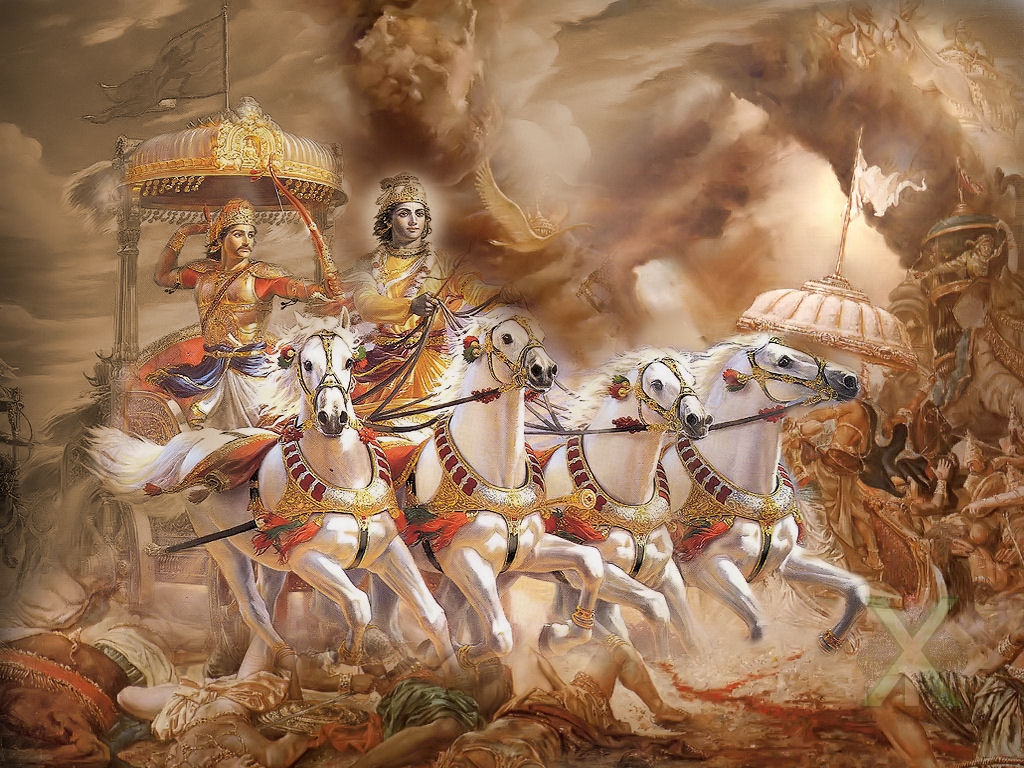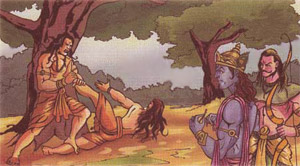To organize into communities was an existential necessity for man. This gave rise to a society when man settled down. Peaceful co-existence was possible only when all members of the society followed certain rules. Rules and regulations can only work when their violation brings adverse consequences for the violator. Rules might be formulated more or less democratically, but they need to be enforced by an authority. A leader was, therefore, required who could punish the offenders and see to it that the rules made are followed. This leader turned into king when groups and communities came together to form State. The king, thus, became the supreme authority within a sovereign territory definable as ‘State’.
For the sake of order the authority of the king must remain above and beyond challenge. But the challenge is always possible because there would never be a dearth of people who might claim to be better than the king and therefore deserving of the throne. This might not sound such a bad proposition at the first instance because there is nothing wrong in only the best being the supreme leader. For instance, a hunting tribe also has a leader who enforces the rules formulated with the consent of all and he conducts business in more or less the same way as the monarch of a sovereign State. But, generally, in such tribes a challenge to the leadership has to be defended by the leader to prove that he is still the best. And if he loses, the challenger becomes the leader. But then, when a problem is brought to the leader, it is not his great hunting skills or his enormous physical might that is summoned but his intellect and wisdom. So, having a great hunter as judge is not a great idea even for a group of hunters. And it did not take long for man to realize it. However, it was also soon realized that if ability alone was projected as the basis of king’s authority, a challenge to the authority would always be around the corner. And king became the representative of God on Earth and that is where the Doctrine of Divine Rights of King germinated.
According to the Doctrine, king is God’s representative on Earth appointed for a specific purpose and accountable to no worldly authority including Church. A king is accountable only, and only to God and nobody else. The Doctrine lent support to royal absolutism. By operation of the Doctrine the subjects had no right to revolt against the monarch on any grounds whatsoever. God is seen as the supreme father and being the representative of God the king stands in that position with respect to his subjects.
Just as no misconduct on the part of a father can free his children from obedience to the fifth commandment, so no misgovernment on the part of a king can release his subjects from their allegiance. [C.V. Wedgwood, The King’s Peace]
Since the purpose of the Doctrine of Divine Rights is universal and is not limited to a particular society or a kind of political group, the concept finds place in the Aryan and Egyptian traditions also. So, the East and the West both subscribed to the Doctrine in one form or the other. However, there are significant differences in the way the concept was conceived and put to effect.
The authority of the
king remains virtually unchallengeable in the West. The subjects do not have any authority to unseat the monarch. However, in a bid to correct the anomaly Thomas Aquinas did provide for the removal of the king. But he did not allow the subjects to do it. The reasoning was that if the subjects were allowed to judge the king, all superior authority that was lawfully installed could lawfully be uninstalled through an arbitrary judgment of an inferior, which would bring the law and the lawmakers under constant threat. A superior in fear of his inferiors could not be trusted to make the impartial decisions fearlessly.
The only authority that could legitimately unseat the king was the Pope. The Church was, therefore, the final body to judge the king, who was supposed to follow the tradition of his ancestors and run the State in accordance with the laws of God to ensure that the ends of justice were met. There is no concept of legitimate rebellion in the West.
In the East the traditional Chinese concept of the Mandate of Heaven is identical to the Doctrine of Divine Rights, but there are certain significant differences between the two. Mandate of Heaven works on four basic principles:
1. The right to rule devolves to the ruler from heaven.
2. There is only one heaven. Therefore, only one ruler.
3. The right to rule is for the virtuous ruler only.
4. The right to rule is not hereditary or dynastic. Just rebellion is permissible.
This implies that if the ruler is non-virtuous, he can be removed and Mandate of Heaven allows for and supports a rebellion for the purpose of overthrowing a bad ruler.
Aryan tradition is also similar in this respect, for it also conceives of a just king and a monarch that is not just and in whose kingdom people are not happy is liable to be overthrown. In this respect Bhishma addresses Yudhisthira in The Mahabharata thus:
Those, O Yudhishthira, those men on earth who desire prosperity should first elect and crown a king for the protection of all. Like disciples humbling themselves in the presence of the preceptors or the gods in the presence of Indra, all men should humble themselves before the king.
Therefore, in Aryan tradition the ruler rules with the express consent of the ruled and once the ruler has been elected by the people, his word is final and he is god-like to the ruled. When the king becomes unjust or ineffective he can be removed. If the conditions in a kingdom are akin to anarchy, here is what Bhishma says about it:
No one should dwell in kingdoms torn by anarchy. Agni does not convey (to the gods) the libations that are poured upon him in kingdoms where anarchy prevails. If a powerful king approaches kingdoms weakened by anarchy, from desire of annexing them to his dominions, the people should go forward and receive the invader with respect.
Anarchy in this context is disorder and lawlessness. In the Aryan tradition it is the ruled whose consent is a must and though the king is worshipped as God, he can be unseated and can become undeserving of such worship if he is unjust and cruel to the masses. Therefore, unlike the West, the East seems to vest the ruled with greater authority when it comes to the removal of a bad king.
Originally published as part of Thinkers and Theory series in Lawyers Update in May 2012.





